Is it a trail if it’s just crushed gravel? Colorado enthusiast would say no, that’s just a softer running path than concrete. In the end, I guess we don’t really care as long as you’re having fun on the run and in the right shoe. Let’s find out if that right shoe might be the new overly long winded named Salomon DRX Defy Grvl Running Shoe.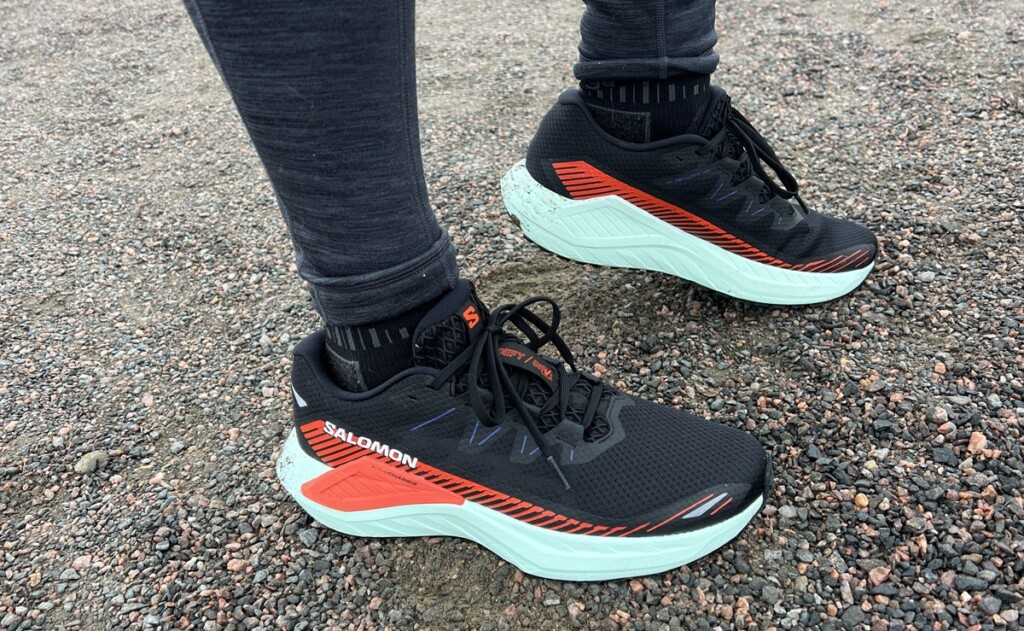 Over the last few years, we’ve been testing a lot more running shoes that fall in to that slot of road to trail running shoe. It makes sense as many of us find ourselves on pavement, gravel, some dirt and more over the course of a great run.
Over the last few years, we’ve been testing a lot more running shoes that fall in to that slot of road to trail running shoe. It makes sense as many of us find ourselves on pavement, gravel, some dirt and more over the course of a great run.
Which is to say sometimes we need a little more than our road shoe, but we don’t need the massive lugs of a true trail shoe which are going to be worn down from pavement.
Salomon is treating this like a new category of shoe, comparable to that place between your road bike and mountain bike, aka a gravel bike. Maybe. Let’s find out.
Who is it Good For?
Who is the Salomon Drx Defy Grvl a good fit for, let’s break it down by some common categories:
- Wide Feet: Roomy fit and definitely wider than average Salomon trail shoes
- Heavier Runners: Might be lacking some desired cushion, but does provide stability
- Long Runs: Certainly a moderate lightweight shoe for long runs
- Front of the Pack: Lightweight and responsive, but not a racing shoe
While we tend to recommend stability shoes only if you know you’ve done all the strength work, etc and still have overpronation that’s causing injuries…this is pretty mild and can be beneficial on more uneven surfaces.
Do you need gravel specific running shoes?
Honestly, our testing crew is torn on this. We understand the idea that gravel could be rough on a road shoe…but is it really? Having taken hundreds of running shoes on gravel and dirt all over the world, I can’t say they wear down any faster than miles on the roads.
Where you might benefit is from the flared heel and medial wedge providing more stability, which they’ve dubbed the activeChassis . That alongside feeling like you have more traction if the path happens to have steeper sections.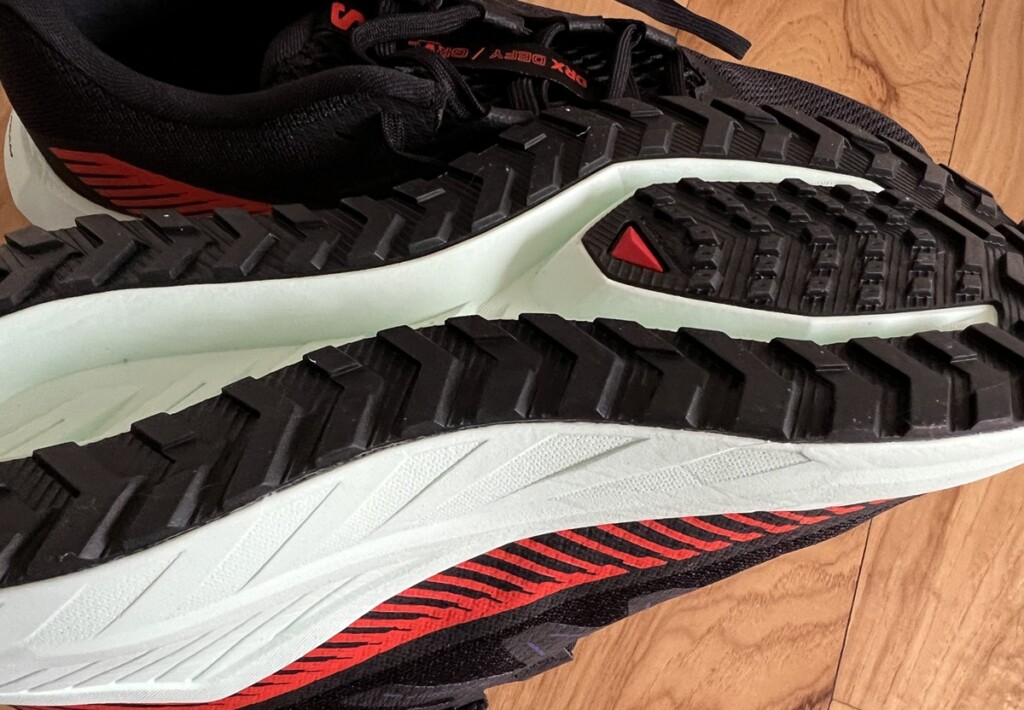
Salomon DRX Defy Grvl Overview
Listen we struggle when shoe reviewers label EVERY shoe as the best for XYZ. Because no one loves every shoe. In this case, we’re pretty darn happy with the shoe, but it didn’t reinvent the wheel.
What they did is create a light trail or more rugged road stability shoe to fit in their line up.
This isn’t a shoe for every day or every use. But it is a shoe with a specific audience who will really enjoy it on easy runs or short pick ups.
Where they made things shine was managing to keep the shoe very lightweight, especially at a 36mm stack height. On the flip side for the stack you aren’t getting a highly cushioned shoe, but instead one that’s firmer due to the stability features. I also think Salomon trail shoes run firm compared to 90% of the cushioned road shoes we see now.
The responsive foam in this shoe is light and could certainly pick up the pace when desired. But it’s nothing like the responsive foam of the Hoka Tecton in bounce or cushion. It’s just a light foam that gives you good ground contact.
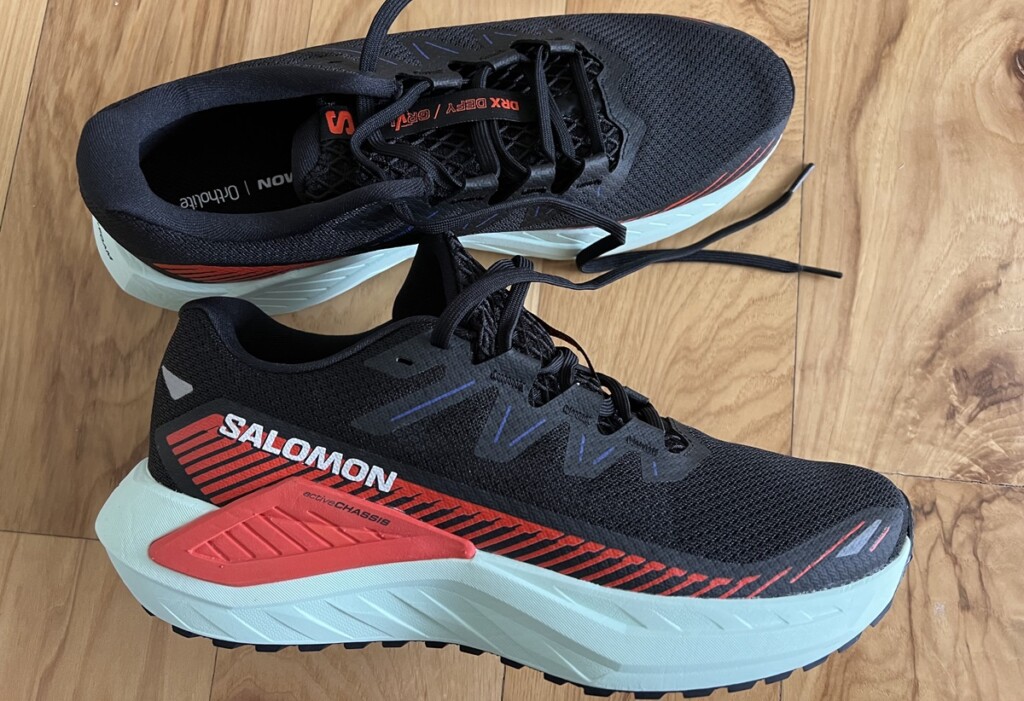
What Makes This a Stability Shoe?
One thing I noticed running in this was my foot didn’t feel free to move, it felt like an unnatural footstrike.
I have no idea if that makes sense, but my ankle actually felt a bit sore post run on the gravel. Which I attribute to the stability keeping my foot in what a shoe would consider a neutral position, but maybe wasn’t how my body wanted to move.
Where most stability shoes use what’s called a medial post, which is denser foam on the inner side of the shoe to prevent excessive inward rolling of the foot (overpronation). The Salolmon DRX Grvl uses their new Active Chassis on both the inside and outside of the shoe.
This dense compound starts at the heel, runs along the upper, and embeds into the midsole, extending to the toe box. By supporting both sides, the Active Chassis aims to address not just overpronation but also supination. This makes sense in a soft gravel shoe where your foot is going to move a lot more in all directions.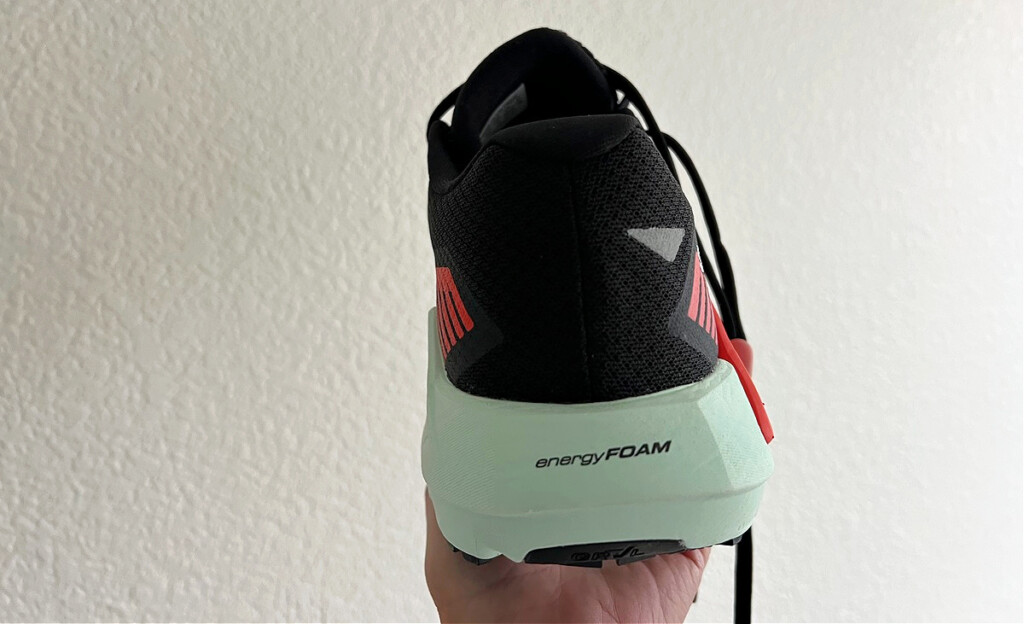
Salomon Defy Grvl Specs
The Salomon DRX Bliss is the road version of this shoe, so they used that stability model and gave it some updates to hit the gravel.
- Weight: 8.7 oz (Men), 8 oz (Women)
- Heel Drop: 8mm
- Stack Height: 36mm (Heel), 28mm (Toe)
- Available in 2 Colors
- Not available in wide
- Available at Salomon.com for $140
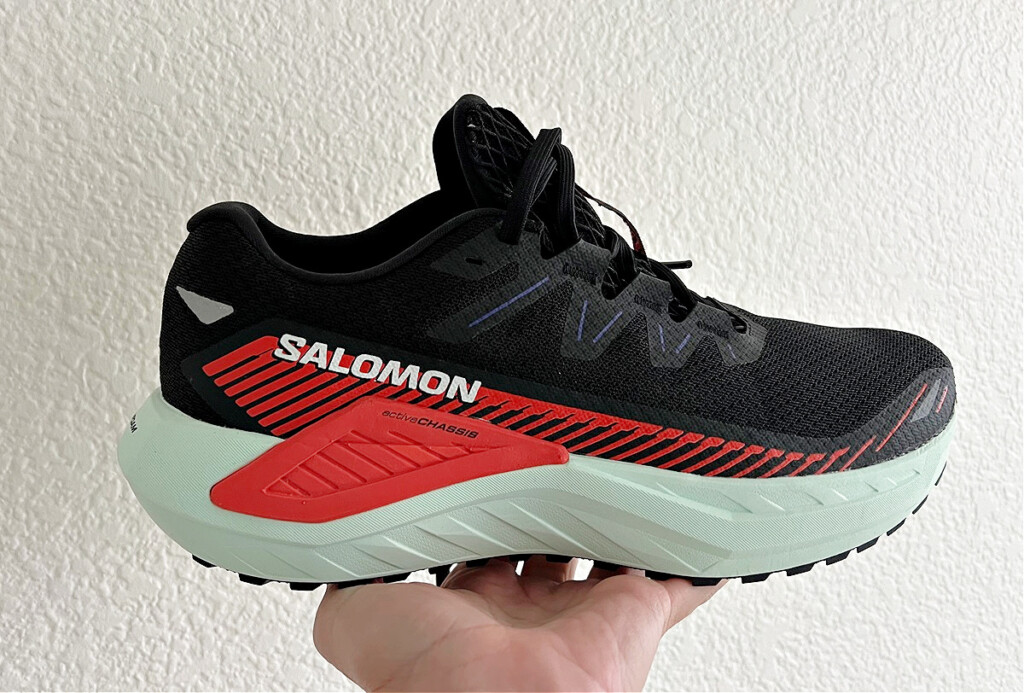
Salomon Gravel Fit
As noted this has a much looser fit than we remember from past Salomon shoes through the mid-foot. In fact, I pulled on a few others to make sure I wasn’t confusing brands and I would say it leans towards the road shoe fit.
Definitely needed to play with lacing to get the fit I wanted through the mid-foot and to really lock in the heel.
Otherwise it’s a pretty standard mesh upper that’s going to feel very much like your road shoe with a light padded tongue and lightly padded collar. Considering the lightweight, there’s actually a decent amount of padding in both spots.
Lengthwise these seemed pretty on track with our normal sizing. We’ve heard some recommend sizing down, but that almost always make our toenails nervous.
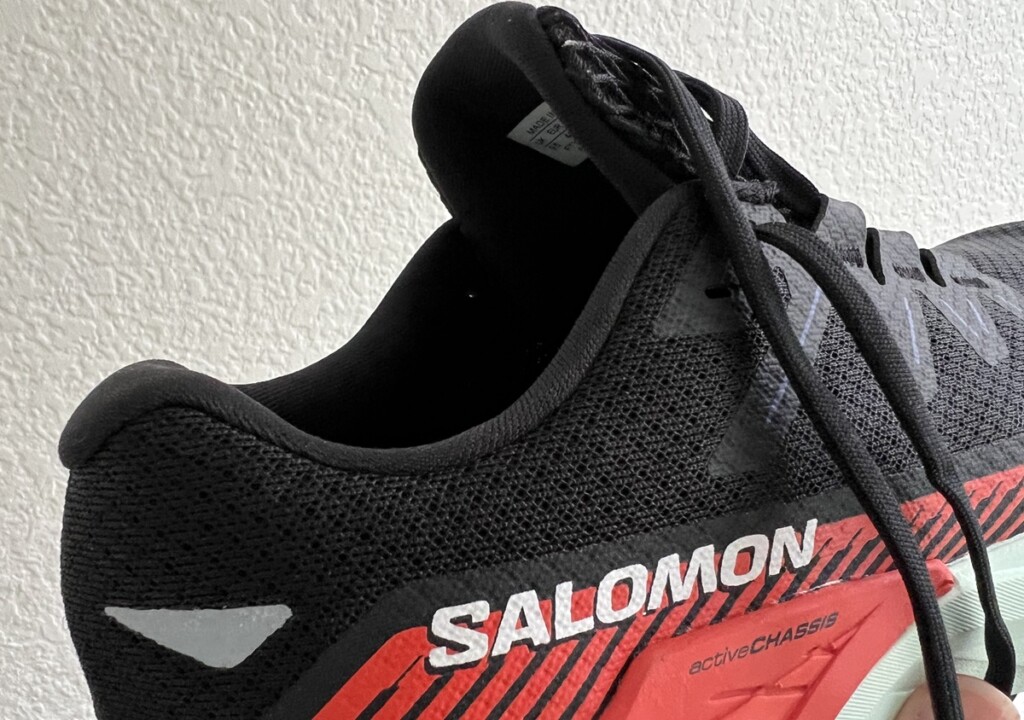
Similar Shoes to Salomon Dfy Gravel
- Hoka Challenger 7 – Slightly more cushioned
- Nike Terra Kiger – Similar cushion, more narrow fit
- Saucony Ride TR – Yup the trail version of their road shoe…sound familiar?
All right there you have it! Our full Salomon DRX Defy Grvl review with the highs and lows of this shoe. You might be able to tell we’re kind of on the fence.
It’s got some good uses, but isn’t going to be one of our top recommendations for the year.
Other ways to connect with Amanda
Instagram Daily Fun: RunToTheFinish
Facebook Community Chatter: RunToTheFinish
Sign Up to Receive a Weekly Newsletter with Top Running Tips and Laughs



 Allbirds Review | Sustainable Comfort For All Day Wear
Allbirds Review | Sustainable Comfort For All Day Wear